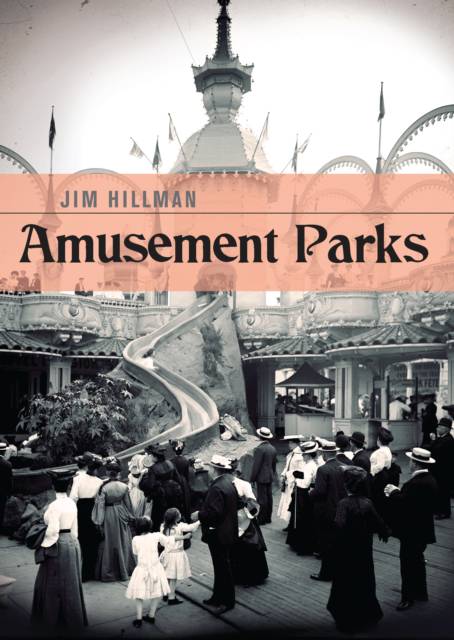
En raison d'une grêve chez bpost, votre commande pourrait être retardée. Vous avez besoin d’un livre rapidement ? Nos magasins vous accueillent à bras ouverts !
- Retrait gratuit dans votre magasin Club
- 7.000.000 titres dans notre catalogue
- Payer en toute sécurité
- Toujours un magasin près de chez vous
En raison de la grêve chez bpost, votre commande pourrait être retardée. Vous avez besoin d’un livre rapidement ? Nos magasins vous accueillent à bras ouverts !
- Retrait gratuit dans votre magasin Club
- 7.000.0000 titres dans notre catalogue
- Payer en toute sécurité
- Toujours un magasin près de chez vous
Description
America's amusement industry emerged from simple swimming ponds, family picnic areas, and community gathering spots. Although the first major entrepreneurial-driven amusement resort, known as Jones Woods, grew from the banks of New York's East River in the 1800s, the Golden Age of American amusement parks began with the mid-1800s development of a Brooklyn peninsula into "America's Playland" Coney Island. Coney Island also paved the way for other developments, including America's oldest continuously operating amusement park, Lake Compounce in Bristol, Connecticut, and the defunct Rocky Point Park in Warrick, Rhode Island.
By 1893, and the opening of the Chicago World's Columban Exposition, Americans were becoming familiar with the marvels of the midway. By the early 1900s, amusement parks dotted the landscape and several larger cities had more than one commercial park. Many of these parks became the stuff of lasting memories, icons of America: Playland Park in San Francisco, Elitch Gardens in Denver, Riverview in Chicago, Riverside in Indianapolis. Many of America's grand amusement treasures have vanished, and many other parks are struggling for survival. But while many of the parks have disappeared, amusement park memories are alive and are firmly part of nostalgic America. As long as the clatter of the old coaster cars fosters nervous anticipation and the thumping of the carousel band organ remains, there will be a market for these American classics. With thoroughly researched text and historic images, author and park enthusiast Jim Hillman captures the sights, smells, and vitality of America's grand amusement park traditions.Spécifications
Parties prenantes
- Auteur(s) :
- Editeur:
Contenu
- Nombre de pages :
- 64
- Langue:
- Anglais
- Collection :
- Tome:
- n° 715
Caractéristiques
- EAN:
- 9780747812098
- Date de parution :
- 21-05-13
- Format:
- Livre broché
- Format numérique:
- Trade paperback (VS)
- Dimensions :
- 150 mm x 211 mm
- Poids :
- 149 g

Les avis
Nous publions uniquement les avis qui respectent les conditions requises. Consultez nos conditions pour les avis.






